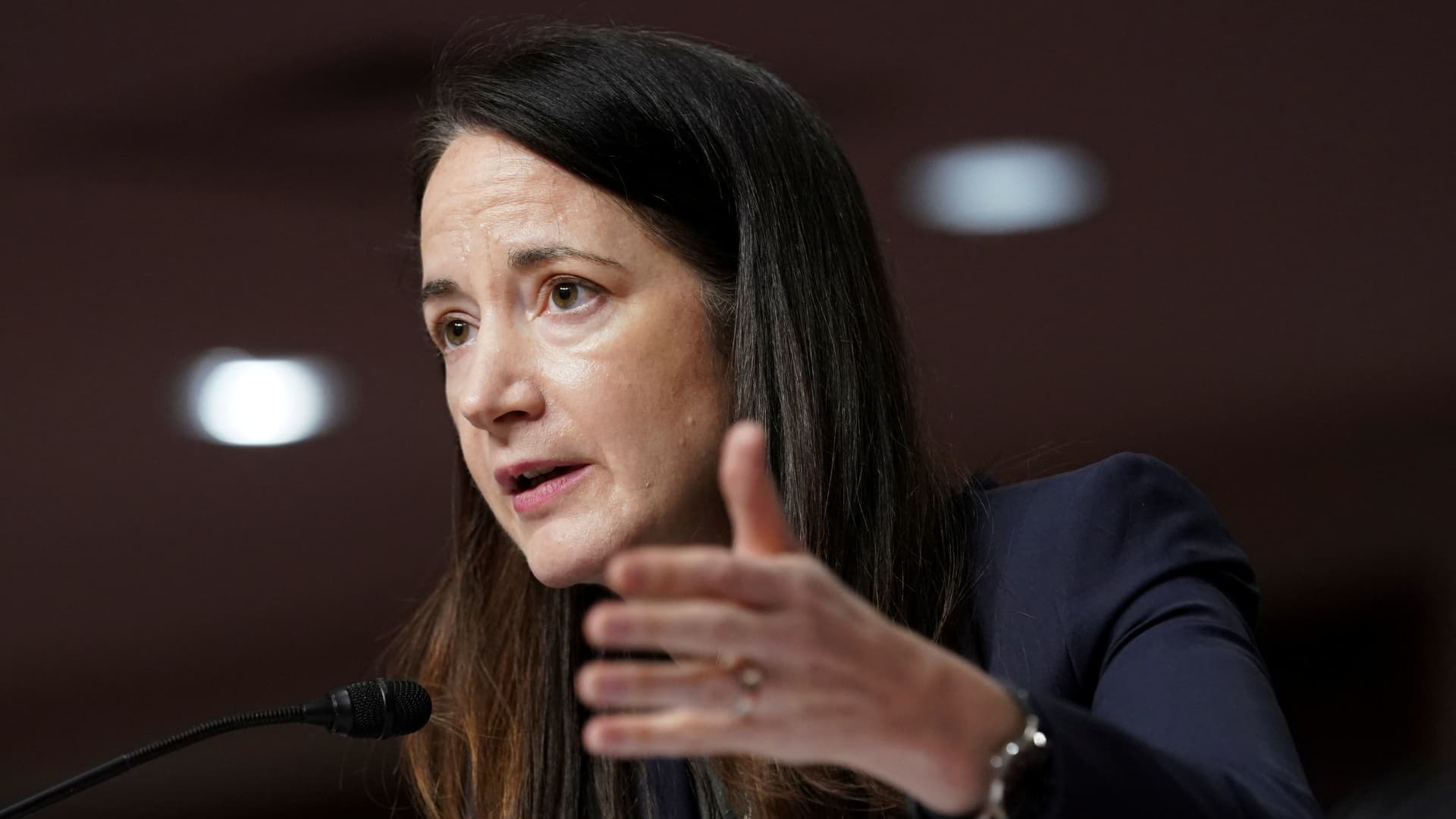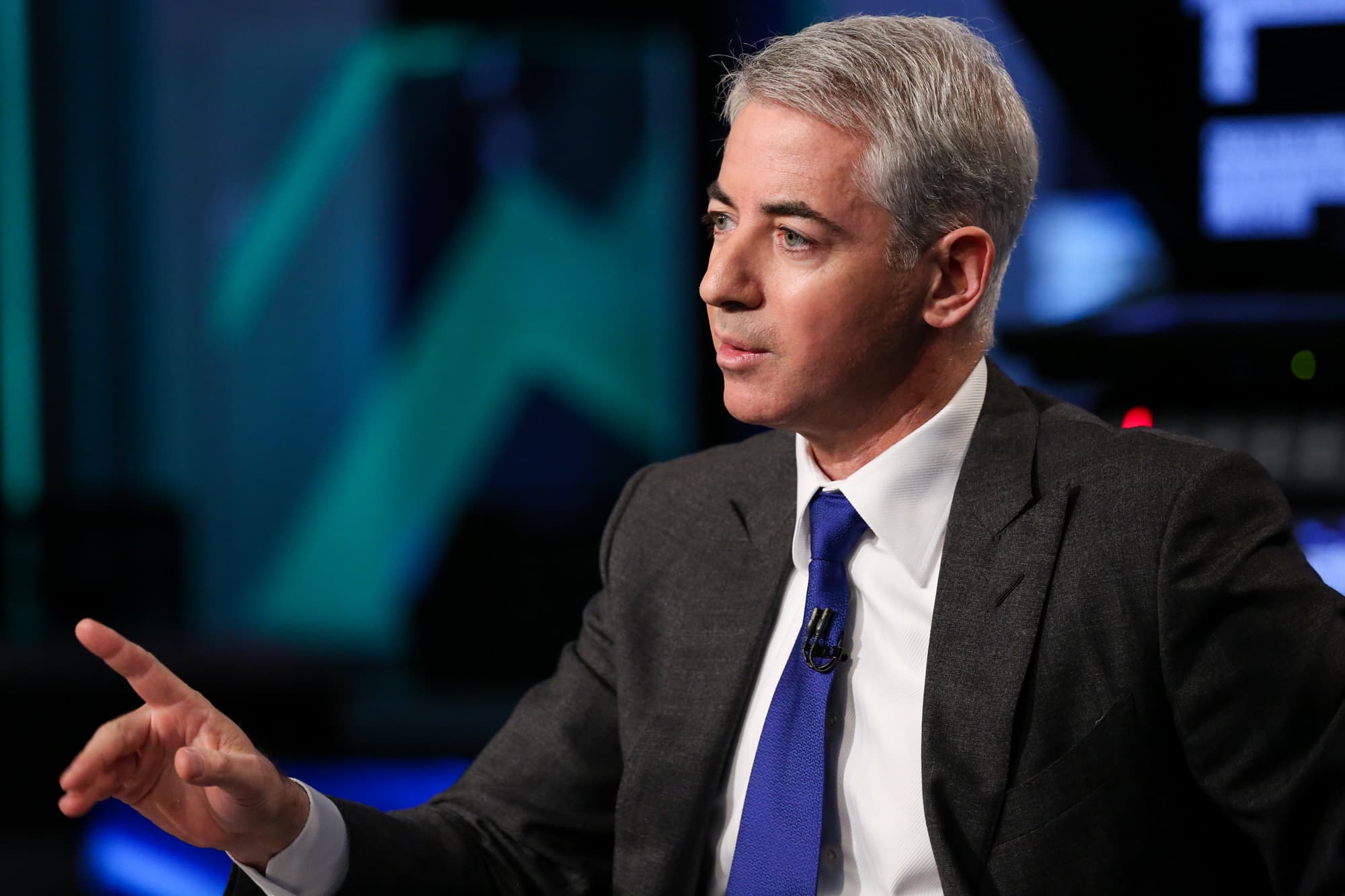Russia and China would use debt default to portray U.S. as chaotic, intel chief warns
A sovereign default would weaken America's credibility abroad, Director of National Intelligence Avril Haines said.

Director of National Intelligence (DNI) Avril Haines testifies during a Senate Armed Services Committee hearing on "Worldwide Threats" at the U.S. Capitol in Washington May 10, 2022.
Kevin Lamarque | Reuters
WASHINGTON — The director of America's top spy agency warned lawmakers Thursday that Russia and China will take advantage of the U.S. potentially defaulting on its debt, which the Treasury Department says could happen as early as June 1.
"It would be almost a certainty that they would look to take advantage of the opportunity," U.S. Director of National Intelligence Avril Haines said before the Senate Intelligence Committee when asked about the national security consequences of the U.S. teetering on the edge of a fiscal cliff.
Haines, who leads America's 18 intelligence agencies, said that Russia and China would attempt to highlight "the chaos within the United States, that we're not capable of functioning as a democracy."
"Almost certainly it would create global uncertainty about the value of the U.S. dollar and U.S. institutions and leadership, leading to volatility in currency and financial markets and commodity markets that are priced in dollars," she said.
Haines added that she is not following each development regarding debt limit negotiations on Capitol Hill.
The debt ceiling, which was first put in place by Congress during World War I, is the limit on the amount of money the federal government can borrow to pay for defense expenditures as well as mandatory programs, such as social security and Medicaid.
In January, Treasury Secretary Janet Yellen notified Congress that the U.S. government started to use extraordinary measures to fend off default.
"Failure to meet the government's obligations would cause irreparable harm to the U.S. economy, the livelihoods of all Americans, and global financial stability," Yellen wrote in a Jan. 13 letter. "I respectfully urge Congress to act promptly to protect the full faith and credit of the United States."
Since 1960, Congress has raised the debt ceiling 78 separate times under both Republican and Democratic presidents.
Read more: What is the debt ceiling? Why it’s important and how it affects you
Shalanda Young, the director of the Office of Management and Budget, echoed Haines' concerns when asked at the White House whether foreign adversaries would benefit from a U.S. default.
"They love this. They love to see chaos in the American system. They love to see that we can't do our basic jobs," Young told reporters during a press briefing at the White House. "The bottom line here, Congress needs to act. Preventing default is their basic constitutional responsibility and they need to get it done," she said.
Read more: Democrats quietly pave the way for a debt ceiling deal
In February, former Secretaries of Defense Leon Panetta and Chuck Hagel warned that the federal government defaulting on its bills, a historic first, will weaken America's national security.
"The consequence of debt-ceiling brinksmanship is a dangerous self-inflected wound that tells both our friends and our enemies that we cannot be trusted. Such brinksmanship weakens our national security," the former Pentagon chiefs wrote in a letter.
The former secretaries added that Russian President Vladimir Putin "will be watching to measure the credibility of U.S. economic power" while Washington leads efforts to provide Kyiv with security assistance and coordinate global sanctions on Moscow.
"To default on our financial obligations at this time would both undermine our own power and encourage Putin to continue his futile war on democracy," Panetta and Hagel said.
What's more, a default would also impact the U.S. governments' ability to pay the 3.4 million men and women in the sister service branches, National Guard and civilian employees that make up the Defense Department.

 Hollif
Hollif 































